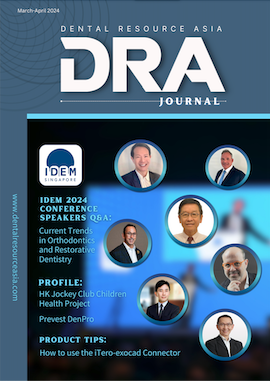CHINA: Regulatory authorities in Beijing stress the need for exploration and cooperation to establish robust regulations for the utilization of artificial intelligence (AI) and innovative technologies in the medical industry.
Xu Jinghe, Deputy Commissioner of the National Medical Products Administration, highlights the accelerated development of medical devices relying on AI, biomaterials, and 3D printing in recent years. Speaking at the 27th annual meeting of the Global Harmonization Working Party in Shanghai, Xu underscores the importance of global collaboration in advancing health while navigating evolving technologies.
Evolving Regulatory Approaches
Regulatory bodies worldwide are adopting experimental tools and methods, departing from traditional frameworks. This shift aims to ensure the safety and efficacy of innovative medical devices, guiding the industry’s development. Xu’s comments were made during the annual meeting, where over 600 participants from 25 countries and regions discussed ways to harmonize medical device regulatory requirements. Xu was elected Chairman of the organization in February, reinforcing China’s commitment to global cooperation.
 Click to Visit website of India's Leading Manufacturer of World Class Dental Materials, Exported to 90+ Countries.
Click to Visit website of India's Leading Manufacturer of World Class Dental Materials, Exported to 90+ Countries.
Quan Tran, Head of the working party’s capacity-building team, emphasizes the critical roles new technologies play across various medical fields. Robots assist in minimally invasive surgeries, AI aids in diagnostic imaging, and 3D printing contributes to orthopedic and dental implants. Tran highlights the obligation of drug regulators to stay abreast of these developments, responding swiftly and innovatively. Striking a balance between ensuring device safety and efficacy while fostering innovation remains a priority.
China’s Accelerated Market Approval
Jia Jianxiong, an official with the National Medical Products Administration’s Center for Medical Device Evaluation, shares China’s efforts in accelerating market approval for innovative medical devices. The accelerated channel, initiated in 2014 and updated in 2018, has processed 2,450 applications, granting market approval to 234 products. Yang Pengfei adds that China’s top drug regulator has published or is reviewing 21 guidelines concerning digital health services and solutions, with a focus on AI-powered medical devices.
Growing Approvals for Deep Learning-Assisted Software
Between January 2020 and May this year, the administration approved 56 Class 3 deep learning-assisted medical software applications. These applications, which operate without hardware, have seen a notable increase, with 25 more expected to gain market approval by year-end. Li Li, Commissioner of the National Medical Products Administration, affirms the commitment to facilitating the development and market registration of innovative medical devices.
Future Endeavours in Global Health
Li Li outlines the administration’s commitment to engaging in working party activities, fostering global communication and cooperation in drug regulation. The aim is to contribute significantly to building a global community of health for all. Deputy Commissioner Xu reiterates the working party’s extensive reach, covering over 50% of the global population. With 48 technical guidelines already formulated, efforts continue to develop regular guidelines and mechanisms for closer international cooperation.
The information and viewpoints presented in the above news piece or article do not necessarily reflect the official stance or policy of Dental Resource Asia or the DRA Journal. While we strive to ensure the accuracy of our content, Dental Resource Asia (DRA) or DRA Journal cannot guarantee the constant correctness, comprehensiveness, or timeliness of all the information contained within this website or journal.
Please be aware that all product details, product specifications, and data on this website or journal may be modified without prior notice in order to enhance reliability, functionality, design, or for other reasons.
The content contributed by our bloggers or authors represents their personal opinions and is not intended to defame or discredit any religion, ethnic group, club, organisation, company, individual, or any entity or individual.



